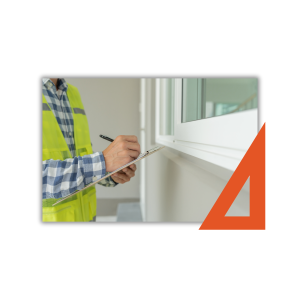Property Condition Assessment in New Jersey: A Comprehensive Guide
In New Jersey, property condition assessments (PCAs) play a vital role in the real estate transaction process. These assessments provide buyers, sellers, and lenders with critical information about the physical condition of a property before a sale is finalized. This article delves into the importance of PCAs, the processes involved, key areas of focus, and the implications of these assessments in the state of New Jersey.
What is a Property Condition Assessment?
A Property Condition Assessment (PCA) is a thorough evaluation of a building’s major systems and components. It is generally performed by a qualified engineering firm. The main purpose of a PCA is to uncover any significant defects or deficiencies that could impact the value or usability of the property. This assessment is crucial for potential buyers to understand the condition of the property and for sellers or existing owners to maintain or improve their property’s value.
For potential buyers, a PCA is indispensable as it provides a transparent overview of the property’s condition, revealing any hidden problems that could incur substantial costs post-purchase. This assessment ensures that buyers are fully informed about the property’s state before making a financial commitment, thus protecting their investment.
For sellers or current owners, conducting a PCA is equally important. It not only helps in identifying areas that need immediate repair but also aids in substantiating the asking price by demonstrating the upkeep and condition of the property. This can be a critical factor in expediting the sale process and achieving a fair market price.
Regular PCAs for existing properties can help owners plan for long-term maintenance and improvements, enhancing the property’s lifespan and overall value. This proactive approach to property management ensures that the building remains safe, functional, and aesthetically pleasing, thereby securing its value against market fluctuations and future uncertainties.
The Process of Conducting a PCA
The process of conducting a PCA in New Jersey involves several key steps:
- Document Review and Interviews: The assessment begins with a review of available building plans, maintenance records, and other relevant documents. Interviews with property owners, occupants, and maintenance personnel are also conducted to gather insights into the history and upkeep of the property.
- Walk-Through Survey: The core of the PCA is a detailed walk-through of the property to visually inspect the physical structure and systems. This includes the building envelope, roofing, foundation, structural components, HVAC systems, plumbing, electrical systems, and safety features.
- Report Preparation: After the survey, the assessor compiles a Property Condition Report (PCR) that outlines the findings. The PCR includes detailed descriptions of each component, the condition, any defects or deficiencies, and the estimated costs for repairs or replacement.
- Expert Recommendations: The PCR also provides recommendations for addressing the identified issues. These recommendations can be prioritized based on the severity and impact on the property.
Key Areas of Focus in a New Jersey PCA

In New Jersey, certain areas require special attention during a PCA due to local climate conditions, building practices, and state-specific regulations:
- Roofing and Water Management: Given New Jersey’s varied climate, effective water management systems are essential to prevent water intrusion, which can lead to structural damage and mold.
- Heating, Ventilation, and Air Conditioning (HVAC): Systems must be evaluated for adequacy and operability.
- Electrical Systems: Condition of the electrical system, sizes, and types of distribution panels in common areas.
- Structural Integrity: This includes checking for signs of settling, cracking, or other structural failures, particularly in older buildings.

The Importance of a PCA in Real Estate Transactions
A PCA is not just a formality; it is a critical component of real estate due diligence in New Jersey. For buyers, a PCA provides a clear picture of potential expenses and risks associated with property ownership. For sellers, a PCA can verify the condition of their property and help justify the asking price. For lenders, it ensures the property being financed is a sound investment.
Challenges and Considerations
Conducting PCAs in New Jersey can present challenges, including:
- Aging Infrastructure: Many properties in New Jersey are historic and may require more detailed assessments.
- Regulatory Compliance: Staying updated with local building codes and environmental regulations is crucial.
- Weather-Related Issues: Properties must be assessed for their resilience to local weather patterns, such as nor’easters and coastal storms.
Property Condition Assessments are an indispensable tool in the New Jersey real estate market, providing stakeholders with essential information to make informed decisions. By understanding the condition of a property, all parties can negotiate from a position of strength, ensuring transparency and fairness in real estate transactions. As New Jersey continues to grow and evolve, the role of PCAs will remain a cornerstone of property investment and management.
Need help with a PCA? We know buildings ®

